失控、适应与创伤:疫情将如何塑造我们的生活?
What Will Our New Normal Feel Like? Hints Are Beginning to Emerge
双语阅读
文/Max Fisher

本月,巴黎市政厅前。
For all the attention to the science and politics of the coronavirus, another factor may be just as important in shaping life under the pandemic: the ways that people will change in response to it.
除了人们对新冠病毒在科学上和政治上的诸多关注,疫情下塑造生活的另一个因素可能同样重要:人们为应对这种疾病而作出的改变。
Changes in how we think, behave and relate to one another — some deliberate but many made unconsciously, some temporary but others potentially permanent — are already coming to define our new normal.
我们思考、行为和彼此之间的关系发生了变化——一些是故意的,但有许多是无意识的;一些是暂时的,而另一些可能是永久性的——已经开始定义我们的新常态。
This crisis may have little precedent, but there are certain patterns in how people and communities behave when thrust into long periods of isolation and danger.
这场危机可能没有什么先例,但是当陷入长期的孤立和危险之中时,人们和社区在行为上是有一定模式的。
“It was the first winter that you realized that this is going to last, this is your life,” Velibor Bozovic recalls of the 1990s siege of Sarajevo, which brought life to a halt in that Bosnian city. “And somehow you live. Just like people are adapting to the situation now.”
“那是第一个冬天,你意识到这将持续下去,这就是你的生活,”韦利博尔·博若维奇(Velibor Bozovic)回忆起1990年代波斯尼亚城市萨拉热窝被包围、生活陷入停顿时。“然后你就继续活着。就像人们眼下在适应的这种情况一样。”

呆在家中。巴西圣保罗4月的一个傍晚。
During the nearly four-year siege, people’s sense of community, memory and even time all transformed, he said. Now, Mr. Bozovic and other survivors are already sensing echoes of that time in the slow-rolling pandemic, which is anticipated to last, barring a miracle, perhaps one to two years.
他说,在近四年的围困中,人们的社区意识、记忆甚至时间都在改变。现在,博若维奇和其他幸存者已经在缓缓蔓延的疫情中感触到那个时代的回声,除非有奇迹出现,预计疫情会持续一到两年的时间。
Research on the effects of epidemics and sieges, along with the emerging body of knowledge about the coronavirus, hint at what the coming months may look like.
对疫情和围困的影响的研究,以及有关新冠病毒越来越多的了解,暗示出未来几个月会是什么样子。
Our ability to focus, to feel comfortable around others, even to think more than a few days into the future, may diminish — with lasting consequences. But we may also feel the tug of a survival instinct that can activate during periods of widespread peril: a desire to cope by looking out for one’s neighbors.
我们的专注能力、与他人相处的舒适感,甚至对未来几天计划的思考能力都可能减弱——从而带来持久的后果。但是,在我们普遍面临危险的时期,也可能会感到生存本能的牵动被激活:渴望通过邻里之间的互相关照来应对糟糕的情况。
“We are incredibly capable to adapt to any kind of situation,” Mr. Bozovic, now a professor of photography in Montreal, said. “No matter how bad it is, you adapt. You live your life as best you can.”
“我们的适应能力令人难以置信,”现任蒙特利尔摄影系教授的博若维奇说。“不管情况有多严重,你都会适应。你会尽自己最大的努力生活下去。”
A World of Half-Closures and Intermittent Lockdowns
半封闭和间歇性封锁的世界
Until the virus is subdued either by a vaccine or by a global campaign of strategically coordinated lockdowns — which one Harvard study estimated would take two years to work — daily life is likely to be defined by efforts to manage the pandemic.
哈佛大学的一项研究估计,要通过疫苗或通过全球战略协调的封城运动来遏制这种病毒,可能需要两年的时间,在那以前,日常生活的定义可能取决于应对疫情的努力。
There is no master formula. But suggestions from public health experts tend to follow a pattern.
没有通用公式。但是公共卫生专家的建议往往遵循一种模式。
Large gatherings may remain rare. A report led by Scott Gottlieb, a former Food and Drug Administration commissioner, said gatherings should be limited to 50 people or fewer.
大型聚会可能仍然极少发生。前食品和药品监督管理局(Food and Drug Administration)局长斯科特·戈特利布(Scott Gottlieb)牵头的一份研究报告称,聚会的人数应限制在50人以内。
This would preclude many weddings, sporting events or concerts. It would rule out a full return to commuting by public transit. Many malls, gyms, restaurants, bars and places of worship might remain fully or partly closed. So would many offices and factories.
许多婚礼、体育赛事或音乐会将无法举办。公共交通通勤难以全面恢复。许多购物中心、体育馆、餐馆、酒吧和宗教场所可能完全或部分关闭。许多办公室和工厂也会如此。
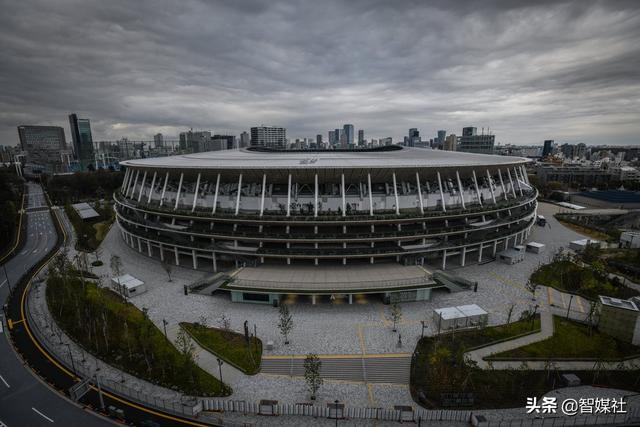
2020东京奥运会的主场馆,这届奥运会推迟举行。
Travel is likely to remain tightly restricted, particularly as societies that have controlled their outbreaks seek to keep new ones from breaking out.
旅行可能仍将受到严格限制,尤其是在已经控制住疫情的社会寻求防止新一轮疫情爆发的情况下。
There may be times and places where restrictions ease, either because cases have dropped off locally or in response to political or economic pressures. But as long the virus persists somewhere in the world, the threat of new local outbreaks, and a return to lockdown, will remain.
限制措施可能在某些时候在某些地方放松,这要么是因为当地病例数下降,要么是出于政治或经济压力。但是,只要病毒在世界的某个地方持续存在,新的局部暴发和恢复封锁的威胁就会依然存在。
With conflicting messages coming from government officials, much of the day-to-day burden of deciding which behaviors are worth the risk will fall on regular people. Even if officials authorize the reopening of shops, for example, neither employees nor customers will return if they consider it prohibitively unsafe.
由于政府官员发出了相互矛盾的信息,因此,决定哪些行为值得冒险的日常负担大部分将落在普通民众身上。例如,即使官员准许商店重新营业,如果员工和顾客认为这样做太不安全,他们也不会返回。
Grasping for Control
掌握控制权
As forces beyond our control, and perhaps even our understanding, dictate our day-to-day lives, the rules and norms may change rapidly.
当我们无法控制,甚至无法理解的力量支配着我们的日常生活时,规则和规范可能会迅速改变。
“Loss of control of one’s routines, sense of normalcy, freedom, face-to-face connections and so on” defined much of people’s experiences during the 2003 SARS epidemic, said Sim Kang, a psychologist at Singapore’s Institute of Mental Health.
新加坡心理卫生学院的心理学家沈江(Sim Kang,音)说,“人们对日常活动、常态感、自由感、面对面的交往等等失去控制”构成了2003年非典期间人们的大部分经历。
Studies from the SARS, Ebola and swine flu outbreaks all recorded near-universal spikes in anxiety, depression and anger. But they also found behaviors focused on regaining a sense of autonomy and control increased as well: people reported working on their diet or hygiene, or reading more news.
对非典、埃博拉病毒和猪流感疫情的研究都记录到焦虑、抑郁和愤怒的普遍激增趋势。但是他们也发现,专注于恢复自主感和控制感的行为也有所增加:人们报告说自己在改变饮食或卫生习惯,或开始阅读更多新闻。
“People, during times of prolonged, radical change, end up changing,” said Luka Lucic, a Pratt Institute psychologist who studies the effects of war.
普拉特学院(Pratt Institute)研究战争影响的心理学家卢卡·卢契奇(Luka Lucic)说:“在长期、彻底的变化时期,人们最终会发生变化。”
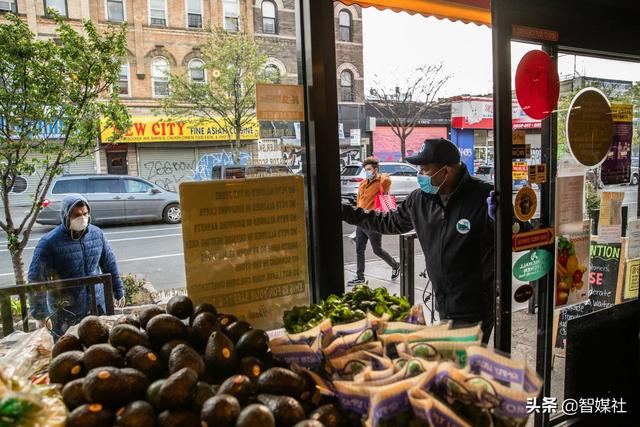
放下保持社交距离的习惯可能并不容易。
His study of Sarajevo siege survivors, for example, found that many had a super-heightened sense of spatial awareness — a skill for evading bullets or bombs that they carried with them throughout life. And mask wearing remains widespread in societies hit by the SARS and MERS epidemics, even for routine colds.
例如,他对萨拉热窝围困幸存者的研究发现,许多人对空间的意识超强,这是一种终生伴随他们的技能,用于逃避子弹或炸弹。在遭受非典和MERS疫情打击的社会里,戴口罩至今仍然很普遍,即使是普通感冒。
When the coronavirus outbreak is under control, aversion to strangers or large groups, and the threat of infection they could pose, might echo in our minds for years.
在新冠病毒疫情得到控制后,对陌生人或大群人的厌恶,以及他们可能构成的感染威胁,可能会在我们的脑海中萦绕多年。
Mr. Bozovic, the Sarajevo survivor, recalled, as a metaphor for deeper changes, a street near his home that was often targeted by snipers. He avoided it during the war — and, to his surprise, well after.
萨拉热窝的幸存者博若维奇回忆起一种更深层次变化的象征:当年他家附近的一条街道经常成为狙击手的目标。他在战争期间总是避开那里,令他吃惊的是,在战争结束很久之后,他依然会避开那里。
“I don’t think I walked that street for months,” he said. “That lingers, that stays. And I’m sure it’s going to be the same now.”
“我觉得我有几个月没有走上那条街,”他说。“那些徘徊和迟疑。我觉得到了现在还是一样的。”
While deeper shifts are difficult to predict, he added, one seemed obvious: “I think it will profoundly change how we interact physically with other people.”
他还说,更深层次的变化虽然很难预测,但其中一个变化似乎显而易见:“我认为这将深刻改变我们与他人的身体互动方式。”
Social Animals
社会动物
The greatest psychological shift amid widespread crisis may be toward what is termed “prosocial behavior” — checking in on neighbors, caring for the needy, cooking for friends.
在大范围的危机期间,最大的心理转变可能是所谓的“亲社会行为”——拜访邻居,照顾有需要的人,为朋友做饭。
Early humans, trapped in a hostile environment, thrived when they cooperated, typically in groups of a few hundred.
早期的人类被困在一个充满敌意的环境下,当他们以通常几百人一组的规模合作时,就会兴旺起来。
Now, as we are once again besieged by nature and isolated into small communities, our survival instincts are re-emerging.
现在,我们再次被大自然包围,被孤立在小小的社区里,我们的生存本能又重新出现了。
During the SARS epidemic, Dr. Sim said, people looked out for one another in ways they might not have done before. They are doing so again now, even in Singapore, a city known for capitalist striving and competition.
沈江说,在非典期间,人们以一种前所未有的方式互相照顾。现在他们再一次这样做,即使是在以资本主义奋斗和竞争著称的新加坡。
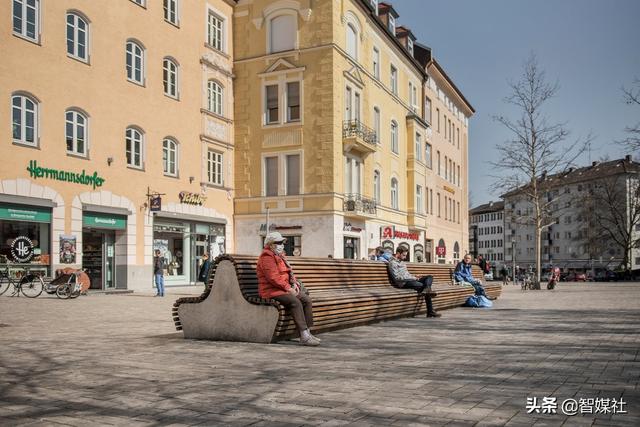
本月,德国慕尼黑。
Those changes in thinking, he added, can reflect not just in-the-moment altruism but deeper emotional growth that can outlast a crisis.
他还说,这些思维上的变化不仅反映了当下的利他主义,还反映了令人们得以战胜危机的更深层情感成长。
Dipali Mukhopadhyay, a Columbia University political scientist who studies how societies cope during conflict, said, “All the different ways that people create solidarity in a crisis get activated.”
哥伦比亚大学(Columbia University)研究社会如何应对冲突的政治学家迪帕里·穆霍帕迪耶(Dipali Mukhopadhyay)说,“人们在危机中创造团结的所有不同方式都会被激活。”
In Daraya, a long-besieged suburb of Damascus, Syria, Dr. Mukhopadhyay found networks of charity and mutual support stronger than in many peacetime societies.
在叙利亚大马士革长期遭围困的达拉雅郊区,穆霍帕迪耶发现,这里的慈善网络和相互支持比许多和平时期的社会更加强大。
Now, she said, she’s seeing similar behaviors forming in New York, where, as in other stricken cities, neighborhoods are reorganizing around local support groups as people instinctively shift toward thinking in terms of their immediate community.
现在,她说,她看到类似的行为正在纽约形成,在这里,就像其他遭受打击的城市一样,社区正在围绕当地的支持团体进行重组,因为人们本能地倾向于考虑身边最近的群体。
Resilience Through Acceptance
通过接受来适应
In the first stages of an epidemic, Dr. Sim said, people feel torn between wanting to resist their new reality, or adapt to it. They may torment themselves trying to preserve normalcy, or counting down the days to its return — as many are now.
沈博士说,在疫情最初阶段,人们会在抵制新现实还是适应新现实之间左右为难。他们可能会折磨自己,试图保持常态,或者天天倒计时,盼着恢复正常的日子到来——就像现在很多人那样。
Liberation, survivors say, comes only through accepting what many would find unthinkable in calmer times: You, as an individual, have little control over the forces upending, and at time threatening, your life.
幸存者说,要想获得获得内心的解放,只有接受许多人认为在平静时期不可想象的事情:作为个体,你几乎无法控制那些颠覆你的生活,有时甚至是威胁你的生活的力量。
“That’s how people in Afghanistan live all the time,” Dr. Mukhopadhyay said. “It’s an assumption that you have no idea how things are going to be tomorrow. And something terrible probably happened yesterday.”
“这就是阿富汗人一直以来的生活方式,”穆霍帕迪耶说。“它假定你不知道明天的事情会怎样。而昨天可能发生了可怕的事情。”
As a result, she said, “People live in the moment.”
因此,她说,“人们活在当下。”
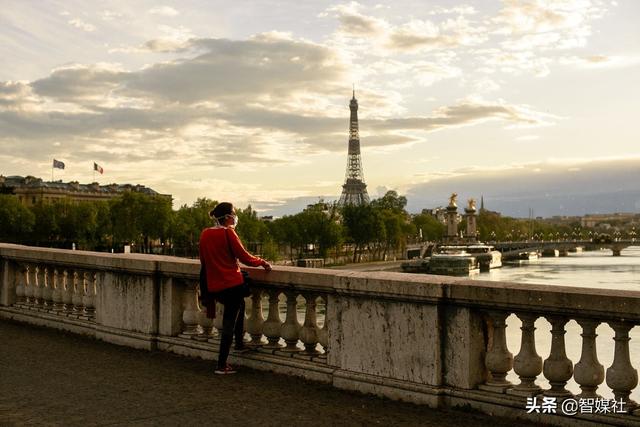
周五的巴黎。处在危机中的人们往往会意识到社群的力量。
Planning tends to be tentative and short-term. People cultivate moments of joy when danger recedes, knowing it might not last. Violence and disruption remain painful, but at least there is no expectation of normalcy or control to shatter. Pain runs deep, but so does resilience.
计划往往是暂时的、短期的。当危险消退时,人们会创造快乐的瞬间,因为他们知道平静可能不会持续太久。暴力和破坏仍然是痛苦的,但人们至少没有对正常状态或控制生活的期待,也就不会失望。痛苦是深刻的,但人们的适应能力也一样。
In the months of pandemic ahead, that may mean planning events like concerts or weddings only days or weeks out, as restrictions lift, knowing they could return at any moment. Travel, business opportunities, even relationships might grow more opportunistic and short-term.
在未来几个月的疫情下,随着限制解除,人们可能会在几天或几周内就安排音乐会或婚礼等活动,因为他们知道,疫情随时都可能回来。旅行、商业机会,甚至人际关系都可能变得更加机会主义和短视。
“That to me is what it means to be resilient,” Dr. Mukhopadhyay said. “It’s to be adapting and accommodating, rather than resistant to, the suffering. I think that’s what it is to live through hardship for sustained periods of time.”
“在我看来,这就是坚韧不拔的含义,”穆霍帕迪耶说。“这是为了适应和习惯,而不是抵抗苦难。我认为这就是在相持阶段挺过困难的方式。”
Deep Scars
深刻的伤痕
In past crises, researchers find, the deepest traumas surfaced only after they had ended.
研究人员发现,在以往的危机中,最深的创伤只有在结束之后才会显现出来。
“The thing we know from war and trauma is that the trauma is well contained whilst you’re doing the fighting, but the problems occur afterward,” said Stephen Blumenthal, a London-based psychologist.
“我们从战争和创伤中得知,当你在打仗的时候,创伤可以被很好地控制住,但问题会在随后出现,”伦敦心理学家史蒂芬·布卢门撒尔(Stephen Blumenthal)说。
Until then, it can come out other ways.
在那之前,它可能还会以其他方式出现。
People may struggle to regulate their emotions, finding anger and panic come more easily. There could be upticks in insomnia and substance abuse.
幸存者可能很难控制自己的情绪,发现自己更加易怒和容易恐慌。失眠和药物滥用可能会增加。
In 2006, Mr. Bozovic suddenly developed symptoms of post-traumatic stress that had waited over a decade to emerge — a cautionary tale, he said.
2006年,博若维奇突然出现了创伤后应激障碍,此时距离围城已经过去了十几年的时间。他说,这是一个值得警惕的故事。
“We’re all going to live with this somehow,” he said. “I don’t know how those anxieties will translate, but they will be there.”
“不管怎样,我们都会接受这一点,”他说。“我不知道这些焦虑会如何转化,但它们会一直存在。”
This was a common prediction among survivors. We may surprise ourselves with how easily we return to many activities. But a year or more of fearing physical contact could alter something fundamental.
这是对幸存者的普遍预测。我们可能会惊讶地发现,我们可以很容易地回到许多活动中去。但一年或更长时间对身体接触的恐惧,可能会改变一些基本的东西。
“That anxiety will linger for a long time, and it will profoundly change how people interact for a long time,” Mr. Bozovic said. “Maybe forever.”
“这种焦虑将持续很长一段时间,它将深刻地改变人们在很长一段时间内的互动方式,”博若维奇说。“也许是永远。”
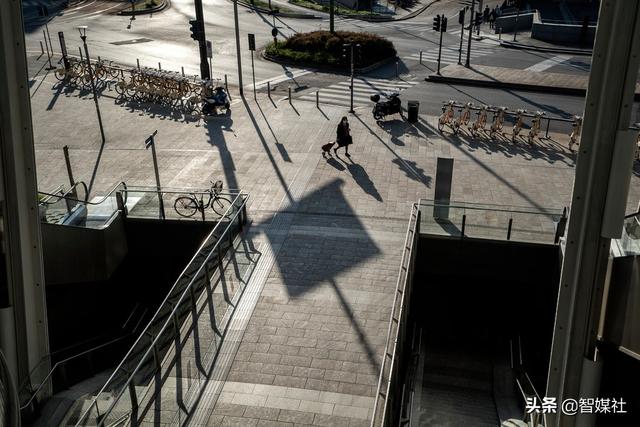
本月,意大利米兰。
来源:纽约时报中文网 2020-4-23
翻译:晋其角、邓妍



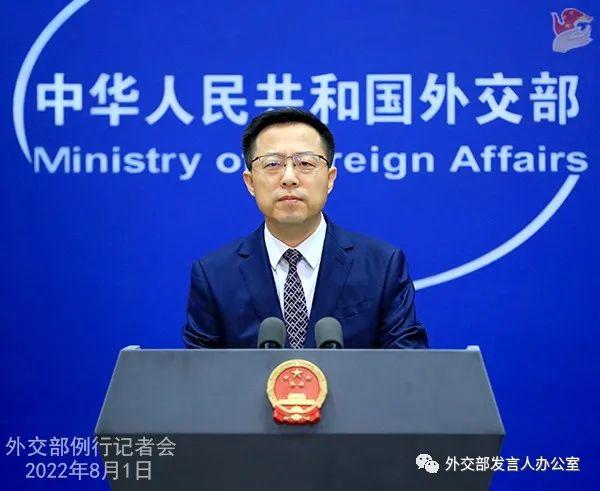






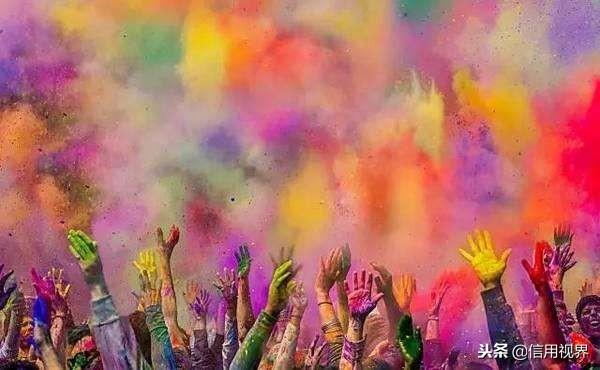











评论